- Joined
- Mar 7, 2023
- Messages
- 2,077 (4.74/day)
- Location
- South East, UK
The story of the MSX platform, as it celebrates its 40th anniversary, is one of the games industries remarkable journeys that has left a powerful imprint on the world of technology and entertainment. Born in June 1983, the MSX, an acronym for "Machines with Software eXchangeability", emerged as a pioneering force that not only connected continents but also people through the magic of computing.
The birth of the MSX was a momentous event, an ambitious undertaking that materialized through the visionary partnership of Microsoft and ASCII Corporation. Their shared vision was clear: to create a standardized computing platform that would foster compatibility and ease of software development across a myriad of hardware manufacturers. What began as an idea soon evolved into a global phenomenon, revolutionizing the way people interacted with computers and forever altering the course of gaming history.
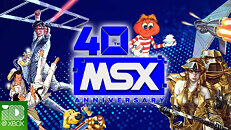
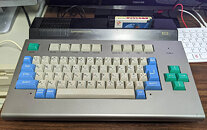
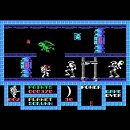
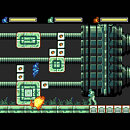
Antstream Arcade available on Xbox is a catalogue of over 1400 fully licensed retro games including the MSX. The MSX was a collaboration between ASCII computing corp and Microsoft in 1983 to produce a standardized computer system which became a hugely successful gaming platform. Antstream is celebrating the 40th anniversary of the MSX this year and brings some new MSX titles to the platform.
As we embark on this captivating journey through time, it becomes apparent that the MSX was more than just a computing platform; it was a cultural phenomenon that transcended national borders. It was a platform that embraced diversity, as manufacturers from Japan to Europe and beyond eagerly embraced the MSX standard. This inclusivity opened the door to a vast array of MSX-compatible machines, each with its unique charm and capabilities. It was a platform for everyone, from the gaming enthusiasts seeking the next adventure to the aspiring programmers looking to create their own digital worlds.
The MSX quickly earned its reputation as a gaming paradise. Classic titles like Metal Gear, Gradius, and Castlevania found a home on the platform, captivating gamers with their innovative gameplay and unforgettable soundtracks. It was on the MSX that the legendary Konami Code was born, a secret sequence of button presses that would become iconic in the world of gaming. The MSX wasn't just a platform for games; it was a canvas for imagination, pushing the boundaries of what was possible in the digital realm.
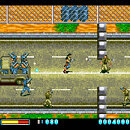
One of the defining features of the MSX was its advanced hardware capabilities. It boasted impressive graphics, a rich color palette, and the renowned MSX-Music and MSX-Audio sound chips. These innovations allowed developers to create experiences that were ahead of their time, captivating players with stunning visuals and immersive soundscapes. The MSX was a revolution in sound and graphics, setting new standards for the industry.
Microsoft's Pioneering Contributions to the MSX Platform
Microsoft played a pivotal role in the development and success of the MSX platform during the early 1980s. The MSX platform was an ambitious initiative aimed at creating a standardized computer architecture, allowing software and hardware compatibility across different manufacturers' systems. Microsoft's involvement was primarily in providing the operating system and a programming environment for MSX computers, which significantly contributed to the platform's popularity.
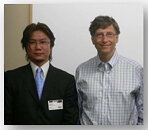
One of Microsoft's most significant contributions to the MSX platform was the creation of MSX-DOS, an operating system specifically tailored for MSX computers. MSX-DOS was based on Microsoft's popular MS-DOS, which was used in IBM-compatible PCs. This operating system made it possible for MSX computers to run a wide range of software, providing users with a familiar computing environment. This compatibility was a key selling point for MSX computers, as it allowed users to access a wealth of software developed for other MSX machines.
Additionally, Microsoft offered a development tool known as MSX-BASIC, a version of their well-known BASIC programming language that was optimized for MSX computers. MSX-BASIC made it easier for software developers to create applications and games for the MSX platform, further enhancing its software library. This development environment helped cultivate a thriving community of programmers and software enthusiasts who contributed to the growth of the MSX ecosystem.
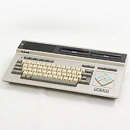
Microsoft's involvement in the MSX platform also extended to partnerships with hardware manufacturers. They worked with various companies to ensure that MSX computers adhered to the standardized specifications, which included common graphics and audio capabilities. This standardization made it easier for software developers to create software that would run consistently on different MSX machines, regardless of the manufacturer.
Microsoft played a vital role in the MSX platform's success by providing MSX-DOS, MSX-BASIC, and supporting hardware standardization. These contributions fostered a vibrant ecosystem of software and hardware development, ensuring that the MSX platform remained popular and influential during its heyday in the 1980s. Although the MSX platform eventually faded from the mainstream, its legacy lives on in the world of retro computing and gaming.
But the legacy of the MSX doesn't reside solely in the past. While it may no longer be in production, its spirit lives on in the hearts of enthusiasts and collectors worldwide. Emulation projects and online communities ensure that MSX software and knowledge remain accessible to new generations of fans. The MSX's collaborative nature, innovative hardware, and rich library of software continue to inspire developers and retro enthusiasts today. Its influence can be seen in modern indie games, chiptune music, and the enduring popularity of retro gaming culture.
As we celebrate 40 years of the MSX, we pay homage to a platform that not only brought people together but also pushed the boundaries of what was possible in computing and gaming. Join us in this exploration of the MSX's remarkable journey, a story of innovation, creativity, and the enduring love of a devoted community. Happy 40th anniversary, MSX - your legacy is a testament to the power of technology to connect and inspire across generations.
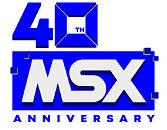
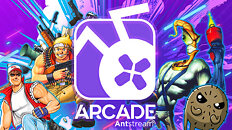
Remember you can play iconic MSX games such as Boulder Dash, Xenon and Game Over (Parts one and two) as well as newer titles made specifically for the system such as the awesome shooter Metal Dragon right now on Antstream! Antstream is available on PC and the Xbox via subscription and offers over 1300 game titles across all the Arcade, console and home computer systems you know and love.
View at TechPowerUp Main Site | Source
The birth of the MSX was a momentous event, an ambitious undertaking that materialized through the visionary partnership of Microsoft and ASCII Corporation. Their shared vision was clear: to create a standardized computing platform that would foster compatibility and ease of software development across a myriad of hardware manufacturers. What began as an idea soon evolved into a global phenomenon, revolutionizing the way people interacted with computers and forever altering the course of gaming history.




Antstream Arcade available on Xbox is a catalogue of over 1400 fully licensed retro games including the MSX. The MSX was a collaboration between ASCII computing corp and Microsoft in 1983 to produce a standardized computer system which became a hugely successful gaming platform. Antstream is celebrating the 40th anniversary of the MSX this year and brings some new MSX titles to the platform.
As we embark on this captivating journey through time, it becomes apparent that the MSX was more than just a computing platform; it was a cultural phenomenon that transcended national borders. It was a platform that embraced diversity, as manufacturers from Japan to Europe and beyond eagerly embraced the MSX standard. This inclusivity opened the door to a vast array of MSX-compatible machines, each with its unique charm and capabilities. It was a platform for everyone, from the gaming enthusiasts seeking the next adventure to the aspiring programmers looking to create their own digital worlds.
The MSX quickly earned its reputation as a gaming paradise. Classic titles like Metal Gear, Gradius, and Castlevania found a home on the platform, captivating gamers with their innovative gameplay and unforgettable soundtracks. It was on the MSX that the legendary Konami Code was born, a secret sequence of button presses that would become iconic in the world of gaming. The MSX wasn't just a platform for games; it was a canvas for imagination, pushing the boundaries of what was possible in the digital realm.

One of the defining features of the MSX was its advanced hardware capabilities. It boasted impressive graphics, a rich color palette, and the renowned MSX-Music and MSX-Audio sound chips. These innovations allowed developers to create experiences that were ahead of their time, captivating players with stunning visuals and immersive soundscapes. The MSX was a revolution in sound and graphics, setting new standards for the industry.
Microsoft's Pioneering Contributions to the MSX Platform
Microsoft played a pivotal role in the development and success of the MSX platform during the early 1980s. The MSX platform was an ambitious initiative aimed at creating a standardized computer architecture, allowing software and hardware compatibility across different manufacturers' systems. Microsoft's involvement was primarily in providing the operating system and a programming environment for MSX computers, which significantly contributed to the platform's popularity.

- Above: Naoto Suzuki with Bill Gates
One of Microsoft's most significant contributions to the MSX platform was the creation of MSX-DOS, an operating system specifically tailored for MSX computers. MSX-DOS was based on Microsoft's popular MS-DOS, which was used in IBM-compatible PCs. This operating system made it possible for MSX computers to run a wide range of software, providing users with a familiar computing environment. This compatibility was a key selling point for MSX computers, as it allowed users to access a wealth of software developed for other MSX machines.
Additionally, Microsoft offered a development tool known as MSX-BASIC, a version of their well-known BASIC programming language that was optimized for MSX computers. MSX-BASIC made it easier for software developers to create applications and games for the MSX platform, further enhancing its software library. This development environment helped cultivate a thriving community of programmers and software enthusiasts who contributed to the growth of the MSX ecosystem.

Microsoft's involvement in the MSX platform also extended to partnerships with hardware manufacturers. They worked with various companies to ensure that MSX computers adhered to the standardized specifications, which included common graphics and audio capabilities. This standardization made it easier for software developers to create software that would run consistently on different MSX machines, regardless of the manufacturer.
Microsoft played a vital role in the MSX platform's success by providing MSX-DOS, MSX-BASIC, and supporting hardware standardization. These contributions fostered a vibrant ecosystem of software and hardware development, ensuring that the MSX platform remained popular and influential during its heyday in the 1980s. Although the MSX platform eventually faded from the mainstream, its legacy lives on in the world of retro computing and gaming.
But the legacy of the MSX doesn't reside solely in the past. While it may no longer be in production, its spirit lives on in the hearts of enthusiasts and collectors worldwide. Emulation projects and online communities ensure that MSX software and knowledge remain accessible to new generations of fans. The MSX's collaborative nature, innovative hardware, and rich library of software continue to inspire developers and retro enthusiasts today. Its influence can be seen in modern indie games, chiptune music, and the enduring popularity of retro gaming culture.
As we celebrate 40 years of the MSX, we pay homage to a platform that not only brought people together but also pushed the boundaries of what was possible in computing and gaming. Join us in this exploration of the MSX's remarkable journey, a story of innovation, creativity, and the enduring love of a devoted community. Happy 40th anniversary, MSX - your legacy is a testament to the power of technology to connect and inspire across generations.


Remember you can play iconic MSX games such as Boulder Dash, Xenon and Game Over (Parts one and two) as well as newer titles made specifically for the system such as the awesome shooter Metal Dragon right now on Antstream! Antstream is available on PC and the Xbox via subscription and offers over 1300 game titles across all the Arcade, console and home computer systems you know and love.
View at TechPowerUp Main Site | Source





